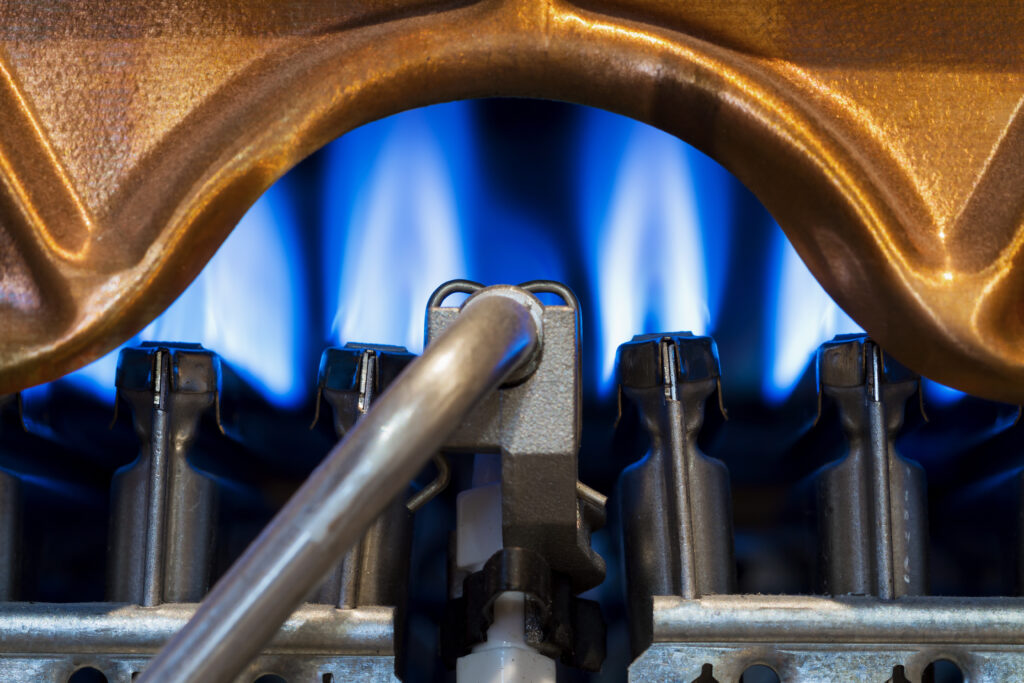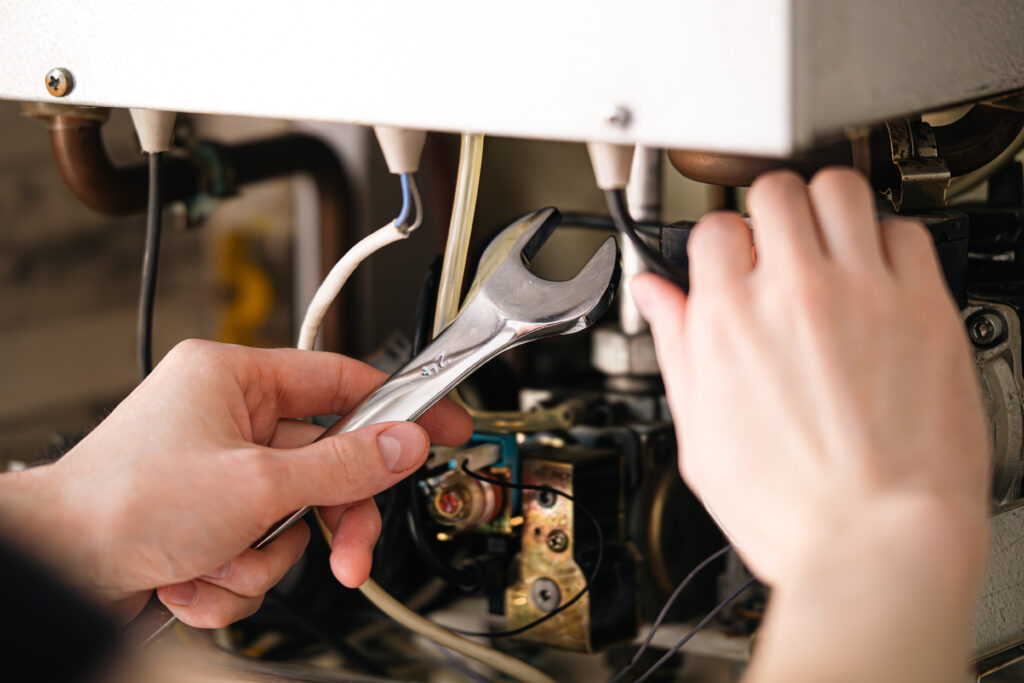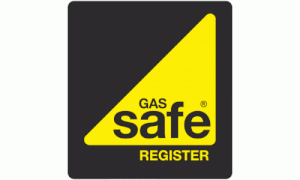Contents
As Scottish temperatures plummet from September’s mild 14°C to December’s bitter 2°C, your boiler transforms from occasional helper to essential lifeline. Yet thousands of Scottish homeowners discover their heating has failed just when they need it most – during those first freezing nights of winter.
The difference between a warm, comfortable home and an emergency call-out often comes down to one simple decision: booking your annual boiler service at the right time. For Scottish homes facing eight months of heating season and unpredictable weather patterns, that timing is everything.
This comprehensive guide covers everything you need to know about boiler servicing in Scotland – from understanding what happens during a service to knowing exactly why autumn represents your best opportunity for maintenance. As MCS and RECC certified engineers, we’ll share the insider knowledge that keeps Scottish homes warm and efficient all winter long.
Why Autumn is the Critical Time for Boiler Servicing in Scotland

Scotland’s unique climate creates a perfect storm of heating challenges. Unlike southern UK regions where heating might remain off until November, Scottish homes often fire up their boilers from late September. This extended heating season – typically running eight months compared to six months elsewhere – puts extraordinary demands on your system.
💡 KEY TIP: Book Your Service in September
Schedule your annual boiler service for September or early October. You’ll beat the winter rush, get better appointment availability, and have time to address any issues before the cold weather arrives.
Autumn boiler servicing makes practical sense for several reasons. Engineers have greater availability before the winter emergency rush begins. If your service reveals issues requiring parts or repairs, you have time to address them before sub-zero temperatures arrive. Energy Saving Trust Scotland specifically recommends September or October boiler servicing, noting that Scottish households use 20% more heating energy than the UK average.
The weather window matters too. Scotland can experience severe cold snaps as early as late October, particularly in Highland regions. By servicing during autumn’s milder weather, you avoid the risk of being without heating during repairs. Your engineer can also conduct more thorough external checks when conditions allow proper inspection of flues and outside components.
Cost considerations further support autumn timing. Many heating companies offer competitive service rates before peak season, and you’re less likely to face emergency call-out charges. With demand lower, you can choose appointment times that suit your schedule rather than accepting whatever’s available during winter’s busy periods.
What Happens During an Annual Boiler Service?

The 15-Point Inspection Process
A comprehensive boiler service involves far more than a quick visual check. Professional engineers follow a systematic process examining every critical component. Your service begins with visual inspections checking for corrosion, leaks, or damage to the boiler casing and connections. The engineer examines pipe work, checking joints and seals that might have deteriorated.
Operational tests form the service’s core. Your engineer will fire the boiler, observing the ignition sequence and checking flame quality. They’ll test all controls including thermostats, timers, and safety cut-offs. Water pressure gets checked and adjusted if necessary – incorrect pressure remains one of Scotland’s most common boiler issues.
⚠️ SAFETY ALERT: Carbon Monoxide Checks
Your engineer should ALWAYS check for carbon monoxide leaks during boiler servicing. If they don’t perform combustion analysis or check your flue, ask them to do so. Your life could depend on it.
Safety checks protect your household from carbon monoxide risks. The engineer tests ventilation, ensuring adequate air supply for combustion. They’ll inspect the flue for blockages or damage, checking that combustion gases safely exit your property. Gas pressure measurements confirm your boiler receives correct fuel supply, while combustion analysis ensures efficient, safe burning.
Efficiency measurements reveal how well your boiler converts gas to heat. Using specialised analysers, engineers check combustion efficiency and compare it against manufacturer specifications. This data identifies developing problems before they become failures, potentially saving hundreds in future repairs.
What Your Engineer Should Check
Your engineer’s checklist covers numerous specific components. The heat exchanger gets inspected for blockages or corrosion that reduce efficiency. Burner components need checking for wear or carbon buildup. The condensate trap and pipe (particularly vulnerable to Scottish winter freezing) require clearing and inspection.
Safety devices demand special attention. The pressure relief valve must operate correctly, protecting against dangerous pressure buildup. Thermostats need testing across their full range. The gas valve requires checking for proper operation and tight shut-off. All electrical connections get inspected for security and signs of overheating.
Modern boilers include electronic controls requiring diagnostic checks. Your engineer connects diagnostic equipment, reading error codes and checking sensor readings. They’ll update software if newer versions improve performance or reliability.
How Long Does a Service Take?
Standard boiler servicing typically takes 30-60 minutes for straightforward checks on modern boilers. However, several factors affect duration. Older boilers require more thorough inspection, potentially extending service time to 90 minutes. System boilers with separate hot water cylinders need additional component checks.
📝 PREPARATION TIP: Save Time & Money
Clear the area around your boiler before the engineer arrives. Have previous service records ready. Note any unusual noises or issues. This helps your engineer work efficiently and might reduce labour charges.
First-time services often take longer as engineers establish baseline readings and document your system’s configuration. If minor repairs or adjustments are needed during service, add 15-30 minutes. Commercial-grade boilers in larger Scottish properties might require two hours for complete a complete boiler service.
Boiler Servicing Costs in Scotland 2025

Average Service Costs by Region
Boiler servicing costs vary across Scotland, reflecting local market conditions and travel distances. Edinburgh and Glasgow typically charge £75-£100 for standard services, with city-centre properties sometimes commanding premium rates. Perth, Stirling, and other Central Belt towns generally range £70-£90.
Highland and Island communities often face higher costs, ranging £85-£120, reflecting engineers’ travel time and fuel costs. Aberdeen’s strong economy supports prices similar to Edinburgh, while Dundee and surrounding areas typically charge £70-£85. Rural properties might incur additional travel charges, particularly for isolated locations requiring significant journey times.
What’s Included vs What Costs Extra
Standard service prices cover the inspection, testing, and minor adjustments described earlier. Your service certificate, documenting the work completed and any recommendations, comes included. Basic cleaning of accessible components forms part of standard service, as does topping up system pressure if required.
💰 MONEY-SAVING TIP: Service Contracts
Consider an annual service contract if offered. These typically cost £15-£20 per month and include your annual service plus discounts on repairs. You’ll often save money if you need even one repair during the year.
Additional charges apply for repairs beyond routine maintenance. Replacing worn seals or gaskets typically costs £20-£40 plus parts. Cleaning heavily scaled heat exchangers might add £50-£100. If your boiler requires a powerflush to remove system sludge, expect £300-£500 additional cost.
Parts replacement falls outside standard boiler servicing. Common items like thermocouples (£60-£100), gas valves (£150-£250), or printed circuit boards (£200-£400) incur separate charges. Always request written quotes for additional work before proceeding.
Legal Requirements and Warranty Implications

Scottish Regulations for Homeowners
While Scottish homeowners face no legal obligation for annual boiler servicing, several situations create effective requirements. Insurance policies frequently mandate annual professional boiler servicing, with claims potentially rejected for unmaintained boilers. Mortgage lenders increasingly request evidence of proper maintenance, particularly for older properties.
Scottish Building Standards require any boiler work meets current regulations. Only Gas Safe registered engineers can legally work on gas appliances. DIY boiler servicing invalidates insurance and potentially breaks gas safety laws. Carbon monoxide alarm requirements, mandatory in Scottish homes with carbon-fuelled appliances, complement but don’t replace proper boiler servicing.
Manufacturer Warranty Terms
Virtually all boiler manufacturers require annual professional boiler servicing to maintain warranties. Missing even one service typically voids warranty coverage completely. Manufacturers specify Gas Safe registered engineers must complete boiler servicing, with many requiring manufacturer-specific training for extended warranties.
📋 WARRANTY PROTECTION TIP
Keep ALL service documentation in one folder with your boiler manual. Take photos of certificates as backup. Register your boiler online with the manufacturer immediately after installation. Missing paperwork could cost you thousands in warranty claims.
Documentation proves crucial for warranty claims. Keep all service certificates, receipts, and engineer reports. Digital photographs of certificates provide backup evidence. Register your boiler with the manufacturer immediately after installation, noting warranty terms and conditions.
Some manufacturers offer enhanced warranties for boilers serviced by approved engineers. These might extend coverage from 5 to 10 years, potentially saving thousands in repair costs. Check whether your installer offers manufacturer-approved service contracts maintaining enhanced warranty terms.
Signs Your Boiler Needs More Than a Service
Certain symptoms indicate developing problems requiring immediate attention. Unusual noises – banging, whistling, or gurgling – suggest internal issues needing investigation. Yellow rather than blue flames indicate dangerous incomplete combustion requiring urgent repair.
🚨 EMERGENCY WARNING SIGNS
Call an engineer IMMEDIATELY if you notice:
- Yellow or orange flames (should be blue)
- Black soot marks around the boiler
- Smell of gas
- Frequent pilot light failure
- Carbon monoxide alarm sounding
These could indicate potentially fatal issues.
Frequent pressure loss points to leaks within your system. While annual pressure adjustments are normal, weekly top-ups indicate problems. Black soot marks around your boiler suggest combustion problems needing immediate professional attention.
Rising energy bills despite similar usage patterns often indicate declining efficiency. Boilers losing more than 15% efficiency might cost less to replace than continue running. Rooms heating unevenly, or radiators remaining cold despite balanced systems, suggest circulation problems beyond basic boiler servicing.
If your boiler repeatedly locks out or requires frequent resets, underlying faults need addressing. Persistent pilot light failures, particularly on older boilers, indicate component wear requiring replacement rather than adjustment.
Different Types of Boilers and Service Requirements
Combi Boilers
Combination boilers, Scotland’s most popular choice, require specific service attention. The plate heat exchanger needs checking for scale buildup, particularly in hard water areas. Diverter valves, switching between heating and hot water, require testing across all positions. Pressure sensors and flow switches need verification as these components commonly fail in combi boilers.
The expansion vessel requires checking for correct pre-charge pressure. Water filters need cleaning or replacement to maintain hot water flow rates. Modern combi boilers include numerous sensors requiring diagnostic verification during boiler servicing.
System Boilers
System boilers incorporate heating components but require separate hot water cylinders. Service requirements include checking the sealed system pressure vessel and pump operation. The motorised valves controlling heating zones need testing. External expansion vessels require pressure checks, with diaphragm integrity confirmed.
Hot water cylinders need their own inspection, checking immersion heaters, thermostats, and safety valves. The coil inside cylinders requires checking for scale buildup affecting heat transfer. Magnetic filters, protecting system boilers from magnetite damage, need annual cleaning.
Regular/Conventional Boilers
Traditional boilers with tanks in lofts remain common in older Scottish properties. Feed and expansion tanks require inspection for contamination or debris. Ball valves need adjustment to maintain correct water levels. Tank insulation needs checking, particularly important for Scotland’s freezing loft spaces.
🏠 OLDER PROPERTY TIP
If your home has a conventional boiler system (with tanks in the loft), consider upgrading to a modern combi boiler. You’ll save space, reduce heat loss, and typically cut energy bills by 20-30%.
Open-vented systems require different safety checks than sealed systems. The open safety vent pipe must remain clear, preventing dangerous pressure buildup. Pump overrun controls need testing, protecting against thermal shock. These systems often suffer from oxygenation corrosion, requiring inhibitor level checks.
Finding a Qualified Boiler Engineer in Scotland

Essential Qualifications to Check
Gas Safe registration remains the absolute minimum legal requirement. Check engineers’ Gas Safe ID cards, confirming their qualifications cover your boiler type. The reverse shows which appliance types they’re certified to service. Online checking at the Gas Safe website verifies current registration status.
✅ VERIFICATION CHECKLIST
Before letting any engineer work on your boiler:
- Ask to see their Gas Safe ID card
- Check the card is in date
- Verify they’re qualified for your boiler type (check reverse of card)
- Note their Gas Safe registration number
- Verify online at: www.gassaferegister.co.uk
MCS certification indicates higher training standards and commitment to industry best practices. RECC membership provides consumer protection through dispute resolution services. Manufacturer-specific training ensures engineers understand your boiler’s particular requirements.
Scottish and Northern Ireland Plumbing Employers’ Federation (SNIPEF) membership indicates established, reputable businesses. Trading Standards approved traders have passed vetting for customer service and technical standards. Check online reviews, but remember that established companies might have some negative reviews among hundreds of positive ones.
Questions to Ask Before Booking
Ask what’s included in the quoted service price to avoid surprise charges. Confirm whether the engineer carries common spare parts, potentially avoiding return visits. Request estimated arrival times and service duration for planning purposes.
Query their experience with your specific boiler make and model. Ask about warranty implications if your boiler remains under manufacturer guarantee. Confirm what documentation you’ll receive post-service.
Understand their pricing for any additional work identified during boiler servicing. Ask about emergency callback procedures if problems develop shortly after service. Confirm whether they offer service contracts for ongoing maintenance.
Preparing for Your Boiler Service
Clear access helps engineers work efficiently. Remove any stored items from around your boiler, ensuring at least one metre clearance. Provide clear access to relevant areas including airing cupboards, lofts, or external flue locations.
Gather relevant documentation before the engineer arrives. Previous service certificates help identify recurring issues or gradual deterioration. Installation manuals assist engineers unfamiliar with older or unusual models. Note any intermittent problems or concerns, even if currently not apparent.
Ensure someone over 18 remains present throughout the service. Prepare questions about your system’s operation or efficiency. Have payment ready if not using service contracts. Consider scheduling when you can observe the service, learning about your system’s maintenance needs.
After Your Service: Understanding Your Certificate
Your Gas Safety Certificate documents crucial information requiring careful storage. Check all property and appliance details are correct for insurance purposes. The certificate shows whether your boiler passed inspection or requires remedial work.
Efficiency ratings indicate your boiler’s performance against manufacturer specifications. Readings below 80% suggest replacement might prove economical. Compare annual readings to identify gradual efficiency decline indicating developing problems.
📅 NEVER FORGET AGAIN TIP
As soon as you receive your service certificate:
- Take a photo for digital backup
- Note next year’s service date in your phone calendar
- Set a reminder for one month before
- Consider setting up a service plan for automatic scheduling
Recommended actions require prompt attention. “Immediately Dangerous” classifications require instant shutdown and repair. “At Risk” categories need urgent attention though immediate danger isn’t present. “Not to Current Standards” indicates advisable but non-urgent improvements.
Schedule your next service immediately, avoiding forgotten maintenance. Many engineers offer reminder services, calling when annual service falls due. Consider service contracts providing priority booking and potentially reduced repair costs.
The Cost of NOT Servicing: Real Statistics and Consequences

The financial and safety consequences of skipping annual boiler servicing are well-documented across the UK. Understanding these real costs helps put the modest expense of annual boiler servicing into perspective.
Carbon Monoxide: The Silent Killer
Carbon monoxide poisoning remains a serious threat, with the Carbon Monoxide and Gas Safety Society recording 733 unintentional deaths from CO poisoning in the UK since 1995, though there has been a significant decrease to an average of 8.5 deaths per year in the last 10 years. In England and Wales, approximately 30 people still die from accidental carbon monoxide poisoning each year, primarily from faulty heaters, cookers or boilers.
Central heating boiler systems are responsible for 26% of all recorded carbon monoxide poisoning deaths, making them the single largest source, followed by room heaters at 18.3%. Additionally, over 200 people are hospitalised with suspected carbon monoxide poisoning each year, leading to around 60 deaths.
The Scottish Fire and Rescue Service emphasises that gas appliances such as boilers can produce CO if they are not functioning properly, and blocked chimneys and vents can prevent CO from escaping outside. Regular boiler servicing identifies these potentially lethal issues before tragedy strikes.
The True Cost of Emergency Repairs
When boilers fail, the financial impact extends far beyond the repair itself. Emergency boiler repairs in 2025 typically cost between £300 and £500, with call-out fees alone ranging from £100 to £150, and labour rates of £60 to £100 per hour. Weekend or emergency rates can be around 30% above normal day rates.
💷 COST REALITY CHECK
Average annual service: £90-£120
Average emergency repair: £300-£500
Weekend emergency call-out: Up to £600
Skipping one service could cost you 5x more in emergency repairs!
Research from uSwitch reveals that unexpected boiler repair bills cost UK households more than £725 million over a single year, with nearly one-fifth (17%) experiencing at least one breakdown during a 12-month period, averaging £245 in repair costs. Alarmingly, 4% of households faced repair bills exceeding £1,250.
Frozen Pipes and Water Damage
Scotland’s harsh winters create additional risks when boilers fail to maintain adequate heating. Escape of water damage is one of the most common types of domestic property damage claims, with insurers paying out £1.8 million for it every day. Burst pipes and water leaks | ABI
The average insurance claim for water damage due to a burst pipe ranges from £5,000 to £10,000, with burst pipes capable of spewing hundreds of gallons of water per hour. Beyond immediate damage, burst pipes can cause structural issues including sagging ceilings, weakened foundations, and mould growth.
The Maintenance Factor
Insurance implications add another layer of cost. Many insurers may deny claims if regular maintenance hasn’t been performed. Insurance companies often differentiate between sudden incidents and damage from wear and tear, considering unmaintained systems as maintenance issues rather than unexpected events, potentially leaving homeowners liable for all costs.
Prevention vs Cure
Regular boiler servicing identifies issues like worn components, incorrect gas pressure, or blocked flues before they become dangerous or expensive failures.
A Scottish local authority was fined over £13,000 after a carbon monoxide leak at a primary school in February 2020, caused by lack of boiler maintenance – the investigation determined that proper maintenance would have discovered the leak much earlier.
The message is clear: the modest cost of annual boiler servicing protects against potentially catastrophic financial losses, property damage, and most importantly, safeguards your family’s health and lives. When you consider that nearly half of households (48%) would rely on savings to cover unexpected boiler breakdowns, while 13% would need credit cards or bank loans, the value of preventative maintenance becomes undeniable.
Frequently Asked Questions
Can I service my own boiler?
No. DIY gas work is illegal and extremely dangerous. Only Gas Safe registered engineers can legally service gas boilers. Attempting self-service invalidates insurance, warranties, and risks prosecution under gas safety laws.
How often should a boiler be serviced?
Annually, without exception. Manufacturers require yearly professional boiler servicing for warranty validity. Even older boilers benefit from annual inspection, identifying problems before expensive failures occur.
Is summer boiler service okay?
Yes, summer boiler servicing offers advantages including better engineer availability and convenient scheduling. However, autumn servicing provides more time for repairs before winter heating demands begin.
What if my boiler is very old?
Older boilers require more frequent inspection. Consider twice-yearly servicing for boilers over 15 years old. However, boilers over 20 years old often prove more economical to replace than maintain.
Do new boilers need servicing?
Absolutely. First-year servicing is crucial for warranty validity. New boilers need checking for installation issues and initial adjustments after settling into regular use patterns.
Conclusion
Scotland’s challenging climate makes boiler reliability essential, not optional. Autumn servicing provides the ideal timing to ensure your heating system performs when you need it most – through those long, cold Scottish winters that test every component of your heating system.
The benefits extend beyond simple reliability. Regular servicing maintains efficiency, reducing energy bills during our extended heating season. Early problem identification prevents expensive emergency repairs. Most importantly, professional servicing protects your family from carbon monoxide risks that increase with poorly maintained appliances.
Read our guide on Boiler Repair or Replacement, or Service? Making the Right Choice
🎯 ACTION PLAN: Book Today
Don’t wait for the winter rush. Take 5 minutes now to:
- Check when your boiler was last serviced
- Book your autumn service appointment
- Set a yearly reminder
- Consider a service plan for peace of mind
Your warm, safe winter starts with action today.
Read our guide on Winter Heating Tips for Scottish Homes: Your Complete Preparation Checklist
Don’t wait until your boiler fails on a freezing December night. Take action now while engineers have availability and any required repairs can be completed without emergency pressure. Your future self will thank you when winter arrives and your heating works perfectly.
Ready to secure your winter comfort? Book your professional boiler service with Thermal Care Scotland’s MCS certified engineers today. For questions about boiler servicing or to schedule your autumn appointment, contact us – we’re here to keep Scotland warm.

